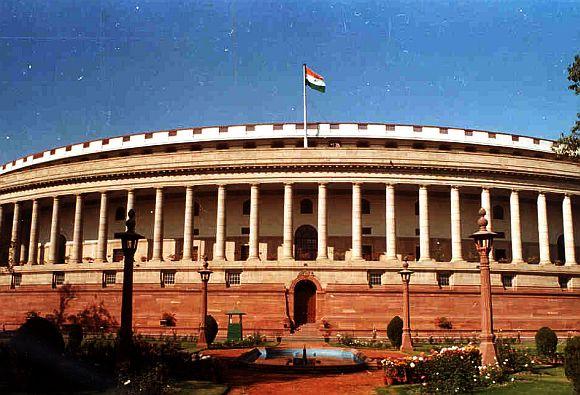Renu Mittal
The Criminal Law (Amendment) Bill, 2013, which proposes stringent punishment for crimes against women, seems to have hit a major roadblock with Opposition parties opposing it vehemently. Renu Mittal reports
The Union Cabinet has cleared the anti-rape bill but major roadblocks have surfaced in Parliament raising serious doubts on whether the bill can be passed by the two Houses.
The Bharatiya Janata Party has formally opposed the bill after it took on a final shape with the Group of Ministers headed by Finance Minister P Chidambaram looking at it clause by clause, tightening the language and making the required changes.
With the age of consent for consensual sex being lowered from 18 to 16, the BJP has opposed this provision and said they will not support it as it will lead to free sex amongst teenagers. BJP's Venkaiah Naidu said they will oppose this bill.
Other political parties like the Samajwadi Party and the Bahujan Samaj Party too are opposing the bill. The Trinamool Congress is also expected to put its weight behind the opposing parties and oppose the bill. It is opposing the Women's Reservation Bill also.
...
Anti-rape law: Government clears it, Opposition chucks it
The situation may be looking tricky for the government, but senior ministers say they are not worried because by clearing the bill and bringing it to Parliament they have sent the message loud and clear that they are in favour of tough laws to protect women and punish those who perpetrate rape.
Knowing that there is stiff opposition to the bill, the government has called an all-party meeting on Monday to discuss the issue before it is brought to the Lok Sabha the next day.
The government wants to pass the bill before the House adjourns for a one month recess on March 22 to ensure that the ordinance it brought does not lapse.
While Union Law Minister Ashwani Kumar said that all the recommendations made by the GOM have been accepted, other ministers in the GOM expressed the hope that it would be passed.
...
Anti-rape law: Government clears it, Opposition chucks it
The Criminal Law (Amendment) Bill, 2013, which proposes stringent punishment for crimes against women, including rape, also defines acid attack, stalking and voyeurism as criminal offenses.
It also lowers the age of consent for sex from 18 to 16 years and makes 'rape' as a gender-specific offence under which men only can be charged for it.
The bill, which was brought against the backdrop of the December 16 Delhi gang rape, provides for minimum jail term of 20 years for rape and can be extended to 'natural life' of the convict in jail. There is also a provision for death sentence if the victim dies or is left in a 'persistent vegetative state'.
Stalking and voyeurism have been defined as criminal offences in the bill. Sustained stalking will be a non-bailable offence.
Interestingly, the GOM has decided to delete the provision providing punishment to women who made malafide or baseless complaints. The provision to punish such women was dropped on the advice of some ministers who felt that the provision could make women reluctant to come out in public and make complaints.
Sources say that in the interest of passing the bill, the government may agree to make further changes if it feels the Opposition is staking up and chances of passing it are retreating.




article